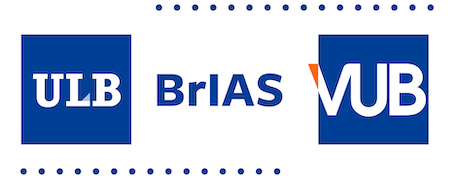Seminar 1: Prof. Gianluca Bianchin (UCL)
Time-varying Feedback Optimization for Highly Dynamic Transportation Systems
Abstract: Transportation systems are essential components of modern societies, enabling the movement of people, goods, and services across regions. Transforming transportation and making it more sustainable are critical needs for a green transition: today, transport accounts for nearly 25% of Europe’s greenhouse gas emissions, which the EU aims to cut by 90% before 2050. Ensuring efficiency and sustainability of transport networks amounts to finding effective ways to optimize these systems when operating in highly dynamic conditions. A rapidly emerging control paradigm called time-varying feedback optimization sets forward as one of the most promising control solution to meet these goals. In this talk, I will introduce the basic framework of feedback optimization and discuss our recent research findings and performance bounds. I will first review classical techniques from numerical optimization and then translate these tools to solve control problems. While these results are relevant for a wide range of applications, specific focus will be given to traffic management problems in transportation systems with humans-in-the-loop.
Seminar 2: Prof. Gilles Delansnay (UMons)
Optimizing Fast Charging of Li-i Real-Time Path Planning Using Zonotopic Extensions to Rapidly-Exploring Random Trees
Abstract: Finding the optimal path in complex environments is a challenging problem due to the non-convexity and variability of the encountered spaces. Efficient and robust algorithms are necessary, particularly for real-time applications where rapid decision-making is critical. This paper presents an extension to the existing Rapidly-exploring Random Tree (RRT) algorithm by leveraging a zonotopic framework to enhance the exploration of the search space. Zonotopes not only effectively represent regions of space but also possess algebraic properties that enable direct computations within the algorithm, such as Minkowski sum, linear mapping, containment, and intersection. This paper demonstrates how zonotopes are seamlessly integrated into the RRT framework and highlights their ability to expand the explored region, thereby improving the algorithm's performance in non-convex environments.
Seminar 3: BrIAS Junior Fellow Dr. Alejandro Goldar
Optimizing Fast Charging of Li-ion Batteries: Overcoming Measurement and Computational Constraints
Abstract: The rapid expansion of Lithium-ion battery applications in portable devices, electric vehicles, and renewable energy storage systems requires smart advanced strategies for monitoring and optimizing battery performance. These strategies must account for operational conditions that may accelerate battery aging. Within this framework, constrained control policies offer a promising approach to both enhancing battery performance and limiting the most common degradation mechanisms. However, several challenges hinder the adoption of advanced battery management strategies: the limited number of available measurements (voltage, current, and temperature), the microscale nature of battery dynamics, and the cost-driven constraints of Battery Management Systems (BMS), which rely on inexpensive sensors and power electronics. This talk explores potential solutions to these limitations, focusing on strategies to reduce charging times while trying to extend battery health and lifespan.
